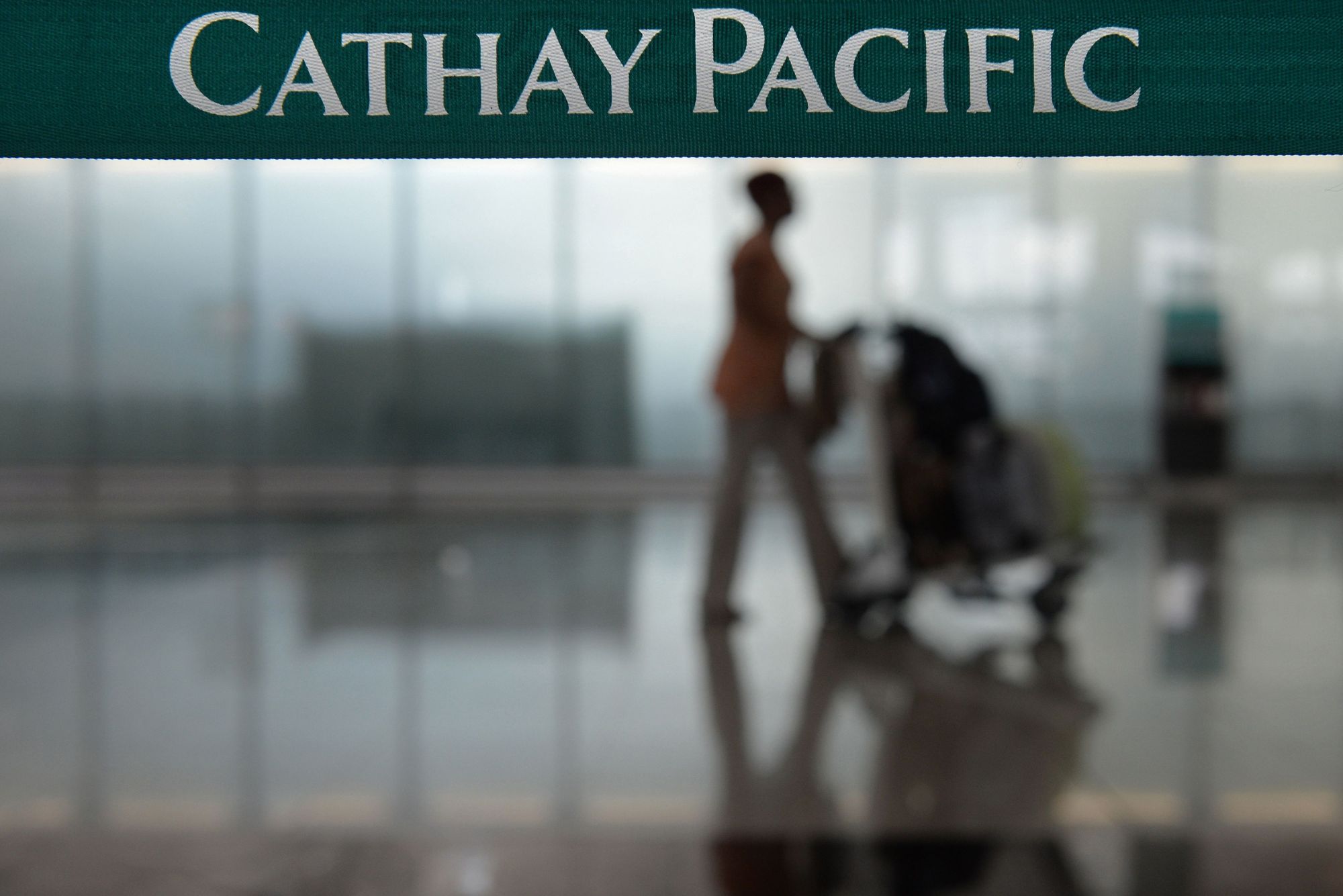For more than half a century, Cathay Pacific Airways Ltd. has been Hong Kong's gateway to the world, its mix of British heritage and Asian high-altitude luxury bridging the city's colonial past with its Chinese location. But it's that unique cultural blend that has ensnared the carrier in an increasingly out-of-control political uprising sweeping through the streets.
After months of anti-Beijing demonstrations in the city, Cathay is emerging as the corporate fall guy as it struggles to navigate a path between the demands of the mainland and employees sympathetic to the uprising. Since last Friday, the carrier's been rebuked by China's regulator, boycotted by state-owned companies and excoriated by the nation's biggest bank. Its stock also hit a 10-year low.
Add the 272 scrubbed flights and 55,000 stranded passengers after protesters occupied Hong Kong's airport and this week has shaped into one of the worst in the carrier's history. But those service disruptions may be the least of Cathay's worries, with China's actions against the 72-year-old carrier a taste of the less autonomous future awaiting the airline — and other Hong Kong companies.



















With your current subscription plan you can comment on stories. However, before writing your first comment, please create a display name in the Profile section of your subscriber account page.